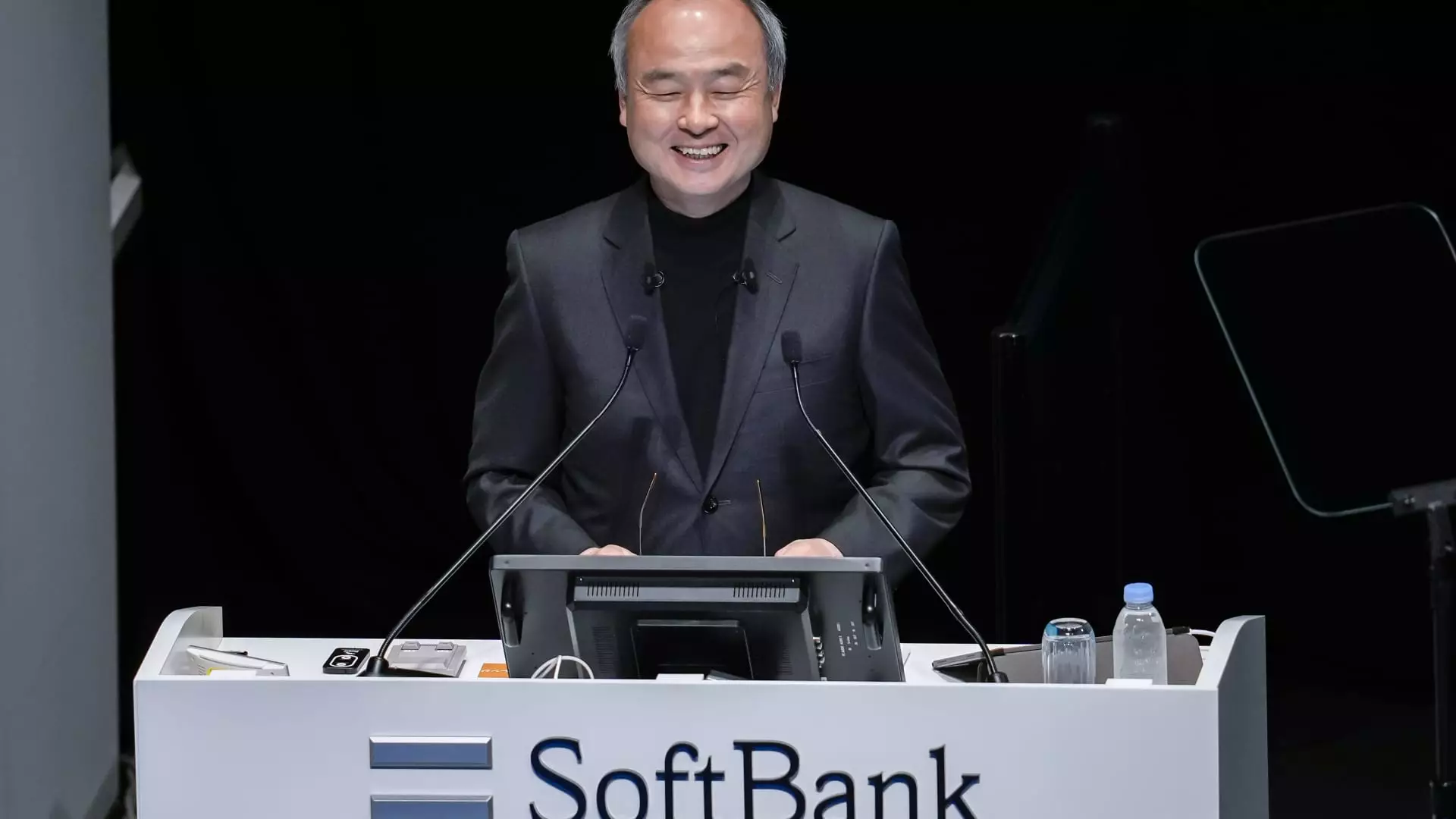SoftBank’s CEO Masayoshi Son’s recent declaration of being “all in” on OpenAI underscores the Japanese conglomerate’s daring approach to one of the most transformative technologies of our time. Son’s unwavering commitment to invest approximately 4.8 trillion Japanese yen (around $33.2 billion) into OpenAI, despite the AI firm’s current unlisted and unprofitable status, reveals not just financial ambition but an ideological bet on the future of artificial intelligence. His conviction that OpenAI will someday be the most valuable company globally reflects a bold optimism that transcends traditional investment caution.
This massive allocation of capital to OpenAI, a company still navigating the complexities of generating profit, highlights SoftBank’s readiness to embrace risk in pursuit of pioneering technological dominance. It’s a strategy that some might label reckless, especially given that OpenAI’s path to a for-profit structure remains uncertain, while others view it as visionary—a testament to Son’s long-standing belief in the profound potential of AI innovation.
Missed Opportunities and Lessons in Partnerships
The narrative of SoftBank’s relationship with OpenAI is layered with strategic second-guessing and timing challenges. Prior to 2019, when OpenAI sought a $10 billion investment, Son was ready to back the startup, leveraging the financial momentum from SoftBank’s Vision Fund. Yet, OpenAI ultimately chose Microsoft as its partner, granting it exclusive cloud-provider status. That choice has since become a complicated chapter, with Microsoft reportedly hesitant to support OpenAI’s proposed restructuring into a more traditional for-profit entity.
Son’s reflection that OpenAI might have been better served partnering initially with SoftBank speaks both to his competitive spirit and regret. While Microsoft brought expansive global infrastructure and brand clout to the table, SoftBank’s deeper philosophical alignment with OpenAI’s ambitions might have led to a smoother collaboration. Recent developments hint at a fractious relationship between Microsoft and OpenAI, contrasting with SoftBank’s renewed eagerness to deepen its involvement independent of Microsoft’s decisions.
Vision for Artificial Superintelligence: An Industry Organizer
Masayoshi Son’s grander vision goes beyond financing OpenAI’s growth. He envisions SoftBank playing a central role in the emergence of “artificial superintelligence” (ASI)—a level of AI intelligence purportedly 10,000 times greater than human capacity. Son imagines the conglomerate as the primary platform provider during this new era, effectively positioning SoftBank as the orchestrator of the evolving AI industry.
The alignment with OpenAI is crucial, but Son’s strategy is multifaceted. The acquisition of Arm, the British semiconductor firm, in 2016, and the recent $6.5 billion purchase of U.S. chip designer Ampere represent deliberate moves to control both the hardware and software components essential for future AI breakthroughs. The synergy between OpenAI’s software capabilities and SoftBank’s chip design assets signals a vertically integrated approach to building an AI ecosystem engineered for scale and power.
Ambitions That Transcend Borders
As part of this vision, Son is reportedly contemplating the creation of a $1 trillion industrial complex in the United States. This indicates a willingness to invest not only financially but also infrastructurally and geopolitically, marking SoftBank’s intention to be a global leader in AI development hubs. It also reflects the increasingly strategic nature of AI investments where access to cutting-edge resources, top engineering talent, and collaborative innovation environments are critical.
This move signals that SoftBank is not just positioning itself as a passive investor but as an active architect of the AI future, shaping industrial landscapes and driving technological progress directly. This type of forward-thinking strategy may well define the next decade of AI advancements.
A Calculated Risk With an Immeasurable Upside
What is striking about SoftBank’s commitment is the clear message that Masayoshi Son is prioritizing transformative potential over short-term metrics like profitability or public market listing. In an era where many firms favor incremental innovation and risk aversion, SoftBank’s approach is refreshingly audacious. However, this ambition also carries enormous risks—particularly if OpenAI fails to realize its vision or faces insurmountable challenges in evolving its corporate structure.
Regardless, Son’s unwavering support illustrates a belief that artificial superintelligence isn’t just inevitable but will reshape every sector of society. His strategy doubles down not only on the technology but on positioning SoftBank at the epicenter of this seismic shift—not as a mere participant but as a potent industry leader driving the future of intelligence itself.

